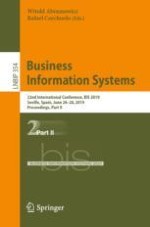2019 | OriginalPaper | Chapter
Keyword-Driven Depressive Tendency Model for Social Media Posts
Authors : Hsiao-Wei Hu, Kai-Shyang Hsu, Connie Lee, Hung-Lin Hu, Cheng-Yen Hsu, Wen-Han Yang, Ling-yun Wang, Ting-An Chen
Published in: Business Information Systems
Publisher: Springer International Publishing
Activate our intelligent search to find suitable subject content or patents.
Select sections of text to find matching patents with Artificial Intelligence. powered by
Select sections of text to find additional relevant content using AI-assisted search. powered by
